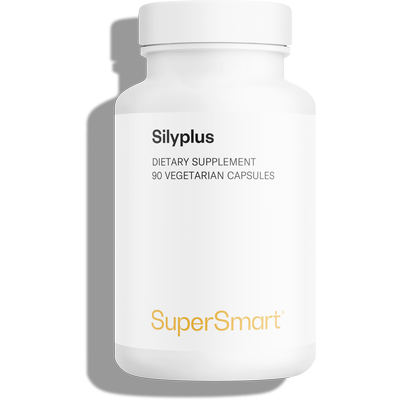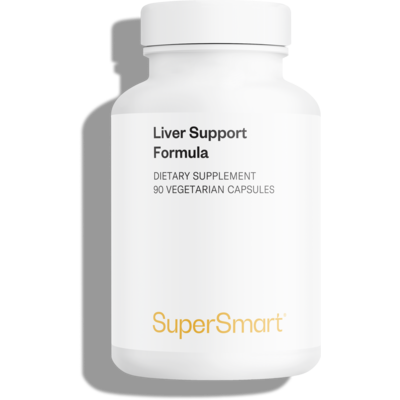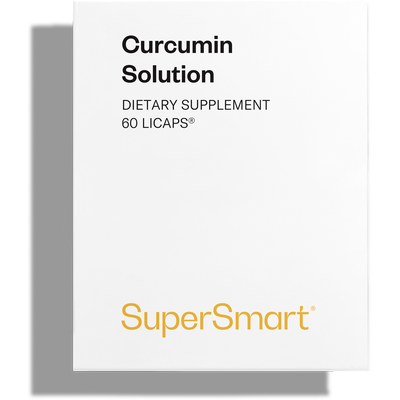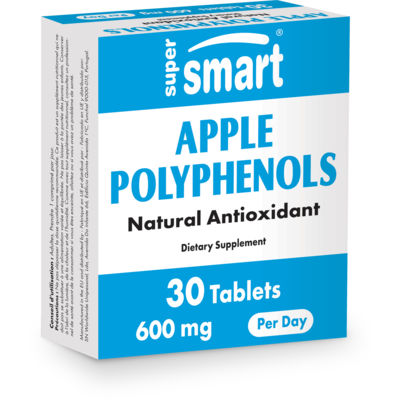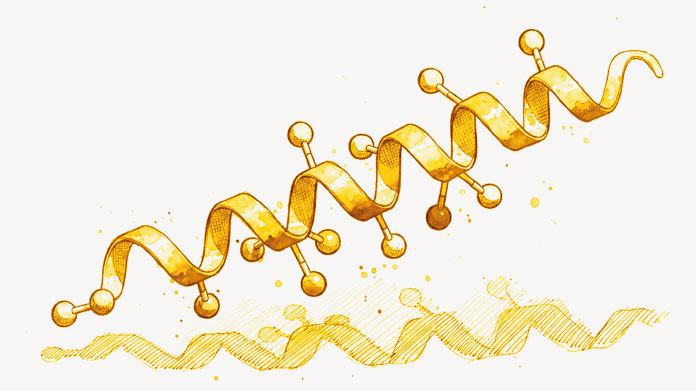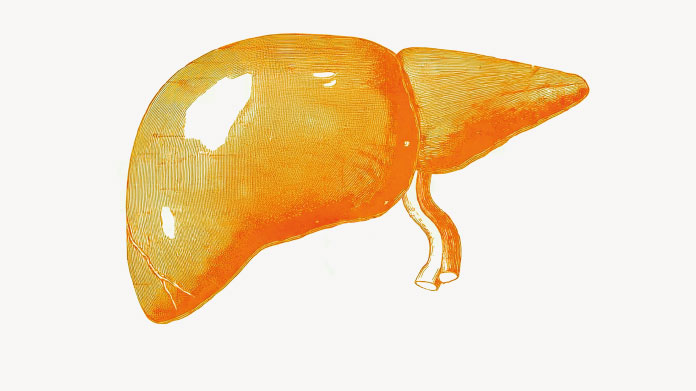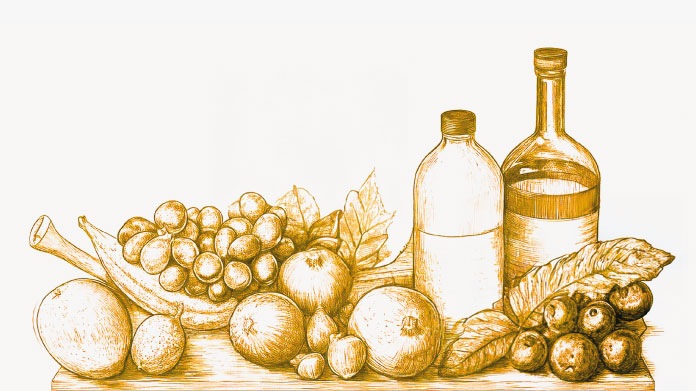What should you take for your liver? 5 tips for supporting its detoxifying function
Looking to cleanse your liver? Here’s an overview of the advice reviewed by the scientific community for naturally supporting liver function and getting back in shape.
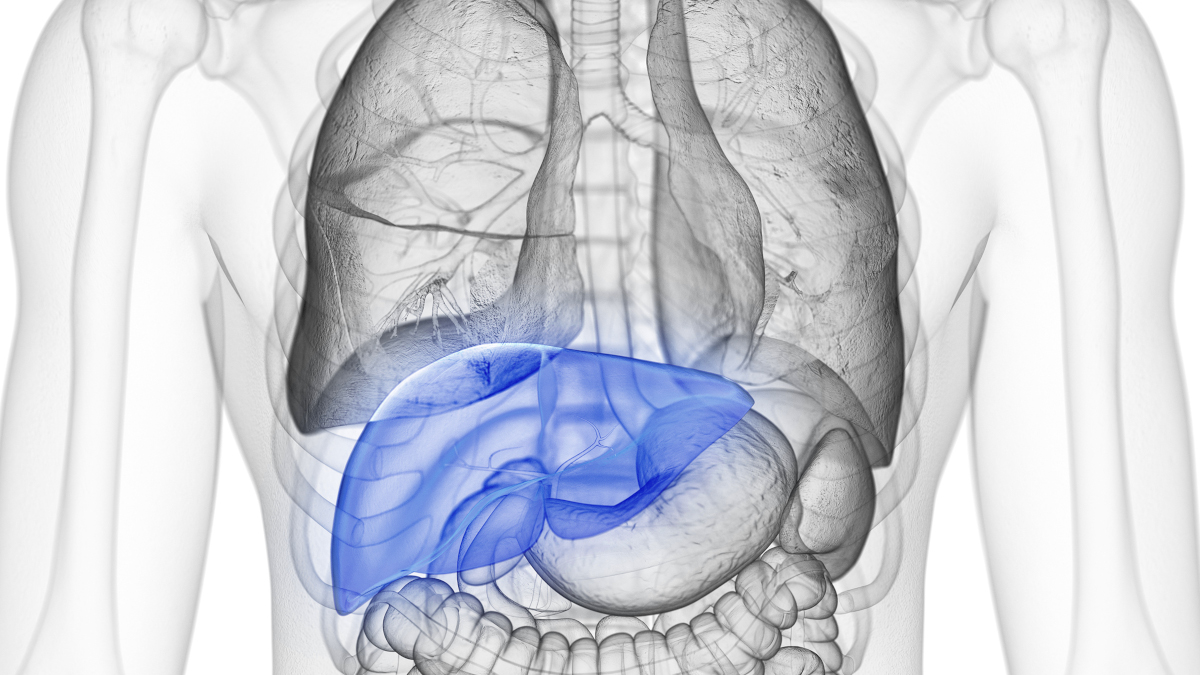
Reminder: help the liver rather than cleanse it
Every day, it works tirelessly to rid your body of the harmful substances to which it is exposed. Its role is critical: without a healthy liver, the body’s physiological functions can start to shut down, one by one. That’s why many people are keen to ‘cleanse’ their liver, arguably the organ worst-served by modern lifestyles, and help it function better.
It’s no coincidence that the liver is one of the few organs to regenerate quickly after an injury. It’s responsible for many vital metabolic functions. It helps maintain normal blood sugar levels and supports the production of crucial proteins (albumin, globulin, ferritin, lipoprotein ...). But what we most associate with the liver is that it breaks down toxins such as alcohol and pollutants. As such, it is often perceived as a filter that needs ‘cleaning’ or unclogging with detox cures, much as we might do with a vacuum cleaner filter.
But the reality is somewhat different: the liver is not a filter but a wastewater treatment plant. It doesn’t devour toxins over time but converts them into molecules which can then be eliminated. So rather than trying to ‘cleanse’ it, you should instead focus your efforts on helping it function better by, for example, providing it with more of the micronutrients needed for detoxification.
Restrict your use of alcohol, sugar, and medications for optimal liver function
three common habits cause problems for the liver: excessive consumption of sugars (especially fructose), excessive consumption of alcohol, and misuse of medication.
- Too much fructose, a sugar often found in sugary processed foods, can cause problems during its metabolism by the liver. Instead of being used straightaway as energy by cells, excess fructose is often converted by the liver into triglycerides, a process known as lipogenesis, and may be stored as body fat.
- Alcohol is bad for the liver when consumed regularly, even at seemingly modest levels (20g, about two drinks). As with fructose, the liver accumulates fat in its cells, which normally contain little or no fat.
- Finally, when medicines are used inappropriately (at too-high doses, not observing minimum intervals between doses …), it can cause serious damage. Indeed misuse of paracetamol is the no. 1 reason for drug-induced liver transplantation in France.
In all three cases, liver function is impaired. An inflammatory response occurs which itself results in damage and can become chronic if bad habits persist over time.
Use milk thistle to support liver function
Milk thistle is without doubt the best natural substance for helping the liver perform its detoxifying function. With a high content of silybin, the plant helps to protect the liver from toxins reduces oxidative stress, and stimulates liver cell regeneration. It also helps prevent the formation of fat cells within the liver (2), largely triggered, as mentioned above, by excessive consumption of fructose, widely used by the food industry as a sweetening agent.
Though this might seem insignificant, it is in fact, crucial: a liver forced to process excessive amounts of fat is prone to chronic inflammation, potentially leading to liver fibrosis. This is a particularly destructive and irreversible process, in which active liver cells become increasingly isolated, struggling to communicate with each other and perform the liver’s vital functions.
Milk thistle can be consumed raw, or cooked like chard, though care should be taken when picking and preparing it as it has sharp thorns. It has delicious, fleshy leaves, similar in taste to artichoke. However, the simplest, most effective way of consuming it is in the form of a dietary supplement (such as Silyplus, a patented form standardized to 33% silybin).
Consume turmeric to maintain a healthy liver
It may not be the benefit most associated with turmeric, and yet. Its high content of curcumin is thought to help reduce inflammation of the liver and oxidative stress caused by the breakdown of liver cells. Studies (3) suggest the compound affects pro-inflammatory cytokines such as TNF-α and Interleukin-1, molecules that spread inflammation in the body.
It’s easy to benefit from turmeric’s properties: you can either use generous amounts of the spice, preferably organic, to season your dishes, together with pepper (the piperine in pepper improves the absorption of curcuminoids), or take a curcumin supplement (such as Curcumin Solution, considered the most bioavailable of all such supplements).
Increase your daily intake of polyphenols
We’re starting to understand more about how they work: research increasingly suggests that polyphenols are the most abundant antioxidants in the human diet. They slow down or prevent the oxidation of other chemicals, including the body’s cellular components, with complex, multi-target effects.
According to several studies (4-5), polyphenols, particularly chlorogenic acid, epicatechin, rutin, and hyperoside, help modulate the oxidative stress that contributes to the degradation of the liver, and its inflammation. They may even play a role in cellular repair systems.
To benefit from their potential liver-protective properties, focus on eating unsweetened food sources (artichokes, cabbage, potatoes, aubergines, broccoli, red onions, pulses, flaxseed, ginger, soya, green tea…) without neglecting other food groups. You can also take a polyphenol supplement (such as Apple Polyphenols).
A synergistic liver formulation worth knowing about
If you’re keen to support your liver and detoxify in general, there are synergistic formulations that bring together several beneficial micronutrients (these are obviously to be considered under the supervision of a health professional, especially if you already have a diagnosed liver problem). They include the comprehensive liver formulation Liver Support Formula, which contains extracts of milk thistle, artichoke, Picrorhiza kurroa and reduced glutathione).
SuperSmart ADVICE
References
- Fei Xiong and Yong-Song Guan, Cautiously using natural medicine to treat liver problems, World J Gastroenterol. 2017 May 21; 23(19): 3388–3395.
- Bahmani M, Shirzad H, Rafieian S, Rafieian-Kopaei M. Silybum marianum: Beyond Hepatoprotection. J Evid Based Complementary Altern Med. 2015;20:292–301.
- Qin T, Chen X, Meng J, Guo Q, Xu S, Hou S, Yuan Z, Zhang W. The role of curcumin in the liver-gut system diseases: from mechanisms to clinical therapeutic perspective. Crit Rev Food Sci Nutr. 2023 Apr 25:1-30. doi: 10.1080/10408398.2023.2204349. Epub ahead of print. PMID: 37096460.
- Machado IF, Miranda RG, Dorta DJ, Rolo AP, Palmeira CM. Targeting Oxidative Stress with Polyphenols to Fight Liver Diseases. Antioxidants (Basel). 2023 Jun 3;12(6):1212. doi: 10.3390/antiox12061212. PMID: 37371941; PMCID: PMC10295067.
- Li S, Yin S, Ding H, Shao Y, Zhou S, Pu W, Han L, Wang T, Yu H. Polyphenols as potential metabolism mechanisms regulators in liver protection and liver cancer prevention. Cell Prolif. 2023 Jan;56(1):e13346. doi: 10.1111/cpr.13346. Epub 2022 Oct 13. PMID: 36229407; PMCID: PMC9816945.
Keywords
1 Hours
repeat customer
recommended by my doctor. easy to create an account. Discounts and specials are appreciated. packaging and delivery is dependable. Capsules easy to digest. I've had some some capsules and tablets that are broken inside their bottles.
Kokee
4 Days
Order was shipped on time and packaged…Wonderful Jobs!
Order was shipped on time and packaged excellently.
DMHoge
10 Days
great products and prices
great products and prices
Marie
16 Days
Easy to navigate site
Easy to navigate site, had what I was searching for, good price. easy order-check out
James Tucker
22 Days
My skin is clearing up nicely!
Pretty good for my skin so far.
Christian
24 Days
The new packaging is excellent
The new packaging is excellent - finally! No more squashed boxes and torn envelopes.
GORAN
25 Days
Great Product
Great Product
Larry Garrett
30 Days
Quick shipping
Quick shipping; good price. No issues!
Mary McCarty
31 Days
Thr product is very good and is helping…
Thr product is very good and is helping me on my health. Then is always on time
LUGO Luz
34 Days
Buying was fine
Buying was fine. I had problems with the website not recognizing my login info, and had to call to get it fixed. Other than that, everything was good.
David S. Clark
34 Days
Your super maca and super ginseng are…phenomenal
Your super maca and super ginseng are phenomenal supplements that compliment each other when taking them together. Fantastic feeling of well-being and lots of mid day energy without the crash.
Keith Mason
37 Days
I have had amazing results with every…
I have had amazing results with every supplement I've purchased. I am extremely satisfied with this company
kirstin Torres
37 Days
Fine products
Fine products . They are on the leading edge of online supplements. The only issue -so far-is they sometime run out of subscription items.
Jason Argos
39 Days
The ordering process is very user…
The ordering process is very user friendly and the products always come in a timely manner.
CARTER Rhonda
41 Days
The price for Dr
The price for Dr. Pero's AC-11 is reasonable and in line with his views. (my former colleague). Keep it pure.
CAMPBELL Clayton


